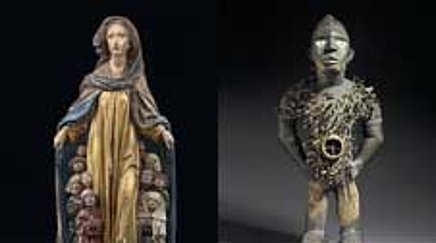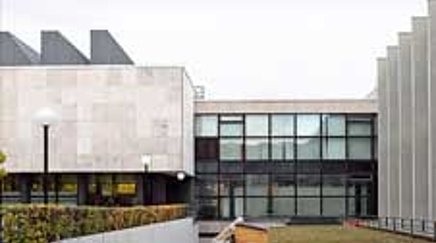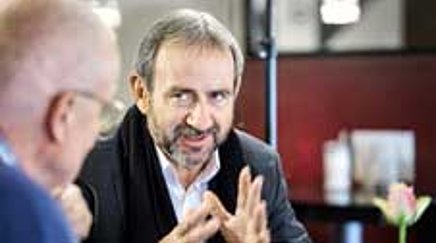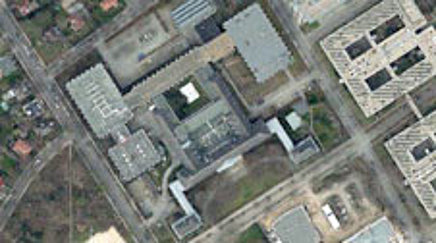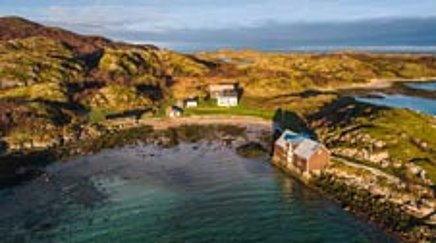“We Must Have the Courage to Tackle Difficult Subjects“
22.12.2016“We Must Have the Courage to Tackle Difficult Subjects“
How should we deal with Germany's colonial past? Hermann Parzinger and Ruprecht Polenz are searching for solutions in the areas of culture and politics.
Mr. Polenz, you are coordinating the process of reconciliation between Germany and Namibia for the German side. When will the negotiations be concluded?
Ruprecht Polenz: Initially, our goal was to conclude the negotiations in this parliamentary term. At the moment, I can't tell whether we will manage to do that. It has turned out that the Namibian side needs more time. There are unrealistically high expectations of material compensation to be dealt with there.
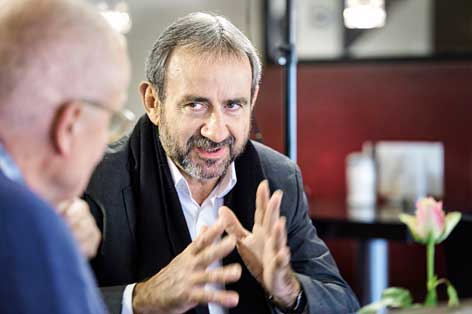
Will Germany officially acknowledge the genocide of the Herero at the end of this process?
Polenz: We are negotiating on several different points in our talks. One of them is the text of a resolution to be passed in both parliaments. This will address the events of 1904, 1906, and 1908 in clear terms – and the word "genocide" will not be missing from it.
Mr. Parzinger, the reassessment of Germany's colonial past has far-reaching consequences for the non-European collections in your institution. Do the collections of the Staatliche Museen zu Berlin (National Museums in Berlin) contain objects that came here as a result of German colonial wars?
Hermann Parzinger: The Ethnologisches Museum (Ethnological Museum) in Berlin, which is one of the biggest in world, does possess objects from colonial wars, but only to a rather small extent. There are comparatively few objects from Namibia, for example – significantly more have come from other German colonies, in particular Cameroon and parts of the Pacific. Most of the collections, however, such as those from America and northern Asia, have no connection with German colonial history. In any case, provenance research is very important to us. We possess one of the most substantial collections by international standards and we don't want to have objects that have been stolen, or taken by force. That's why we have begun a major research project to investigate the origins of our objects from Tanzania. We are working together with historians and other experts from Tanzania to evaluate a difficult chapter of colonial history. In the Humboldt Forum, we want to give sufficient space to both perspectives.
What is the situation regarding human remains and bones?
Parzinger: Several years ago, we took on a large collection of skulls from the Charité hospital. There were more than five thousand skulls, and they were not in a good condition. So together with the Charité, we took steps to ensure their conservation, and now we have started researching their provenance. When their origin has been clarified and legitimate recipients for them have been found, discussions will have to be held about repatriation.
Polenz: The return of mortal remains was also an important issue in the talks with Namibia. We are trying to help the Namibian side find out where collections of this kind currently exist in Germany. It will probably not be possible to resolve that conclusively. At the Namibian end, it has still not been decided what will ultimately happen to the bones. They want to keep the remains in a way that allows the public to view them. But they are still looking for suitable ways of doing it.
Parzinger: The mortal remains from Namibia are clearly related to a colonial crime. The story in the Pacific region is somewhat different. Apparently, village cemeteries were also plundered there, because people knew that the skulls would find buyers throughout Europe. That too has to be investigated.
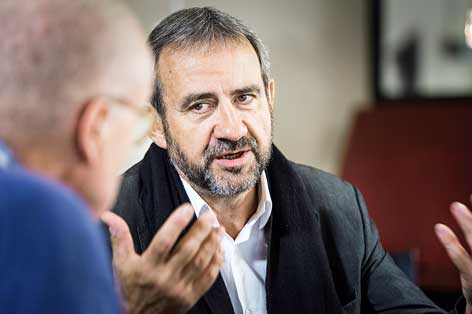
Why exactly is Germany taking responsibility for its colonial past at such a late stage?
Polenz: In Namibia, the reasons are certainly political. There was no meaningful way of dealing with the matter until 1990, when the country became independent. But perhaps the lateness of the hour also has to do with the fact that Germany piled up so many crimes during the first half of the twentieth century that after 1945, those committed in what was then the recent past were dealt with first.
Polenz: I think that in the German political consciousness, the Herero uprising has played a greater role than the Maji Maji War.
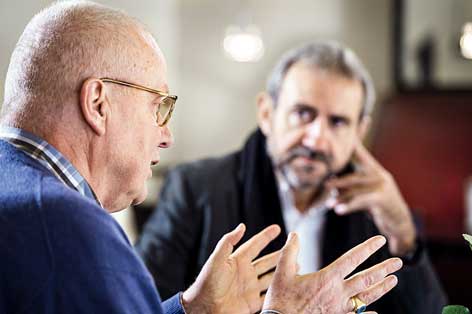
Ruprecht Polenz
Parzinger: Yes, the crimes against the Herero and Nama peoples have already become part of our historical consciousness, but that is not yet the case in relation to the atrocities committed in the Maji Maji War. Museums, however, can do a lot to help inform and educate the public about them. This applies particularly to the Humboldt Forum, which although it is not meant to be a colonial museum, will nevertheless include the colonial past as an important aspect. If we want a dialogue of cultures, we must also muster the courage to address difficult topics.
Polenz: In the negotiations with Namibia, we are proposing a future-oriented Namibian charitable foundation. Among its duties will be that of maintaining a shared culture of remembrance. This will involve more than just joint research projects. It will also consider how the events should be presented in school textbooks, and how the past can best be commemorated in public spaces.
An interesting point. When will there be a memorial to the Herero in Berlin?
Polenz: This too may result from the work of such a foundation. So far, no such demand has been made in the talks. But we could come up with the idea ourselves. I think there is definitely still potential to do more along those lines.
Zitat
Without historical consciousness we are disoriented in the globalized world. Ruprecht Polenz
Parzinger: There will also be enough scope to promote a new culture of remembrance in the context of the Humboldt Forum.
Colonialism, as you mentioned earlier, Mr. Parzinger, played a central role in the development of numerous museums in Europe. Ethnological collections in particular arose from the idea that the world could be collected, exhibited, and sorted according to criteria. Will this general colonial context of the museums be addressed in the Humboldt Forum?
Hermann Parzinger
Born in 1959. Studied archaeology in Munich, Saarbrücken, and Ljubljana. Since 2003, President of the Deutsches Archäologisches Institut (German Archaeological Institute). Since 2008, President of the Stiftung Preussischer Kulturbesitz (Prussian Cultural Heritage Foundation).
Parzinger: Of course we must show how the collections came into being and explain their historical role in the creation of the museums. There will be an area of the Humboldt Forum in which we address the history of the museums. Berlin, in particular, was an important center of collecting in the past. The nineteenth century was characterized by systematic and encyclopedic collecting activity – not only of objects. Every expedition team that left Berlin in those days took a phonographic recording device along on its journey. Using wax cylinders, they recorded languages, singing, and music from countless peoples, some of which no longer exist. We have now digitized most of these recordings, so in the Humboldt Forum you will not only be able to see the world, but hear it as well.
Does this offer an opportunity to break new ground in the presentation of objects?
Parzinger: The Humboldt Forum will be a dynamic museum; the exhibitions must be able to accommodate change. Here too, we will be cooperating closely with the countries of origin. What's more, the non-European collections are going to be brought together with those of other museums in the Humboldt Forum. We don't want to consider each object in isolation any longer. We are trying out this approach right now on Museumsinsel (Museum Island). In the Bode Museum next year, we will show an exhibition that creates a dialogue between African and Christian sculptures. So as far we are concerned, the Humboldt Forum is already a reality in 2017.
Zitat
A key element of the Humboldt Forum's mission is to communicate knowledge as a means of orientation, with the aim of promoting tolerance and respect as well as eliminating reservations and anxieties. Hermann Parzinger
Polenz: The major challenge that we all face today is globalization. If I have understood the idea of the Humboldt Forum properly, it will allow us to share a common retrospective view of our world. Nowadays, the world is growing ever closer together, ever more quickly. The Humboldt Forum can impart a keener awareness of this. That is a tremendous opportunity. I believe that without historical consciousness we would be even more disoriented in the globalized world.
Parzinger: A key element of the Humboldt Forum's mission is to communicate knowledge as a means of orientation, with the aim of promoting tolerance and respect as well as eliminating reservations and anxieties – and to do so in line with Alexander von Humboldt's own convictions: through delight and instruction.
What could "instruction" of this kind reasonably be expected to achieve?
Polenz: We currently live in a world of 7.3 billion people. Each of them possesses their own human dignity. My hope would be that we manage to deal with all the differences between the cultures better in the future than in the past.
Parzinger: The Humboldt Forum is intended to make a significant contribution to this.
Polenz: Right now, I think that's more important than ever. In a time of Trump, AfD, and Front National, a variety of forces are feeding the resurgence of nationalism. They overemphasize our differences to those on the outside, while steamrolling those who are different on the inside. This is a very dangerous mixture.
Parzinger: To end with, I would like to quote Alexander von Humboldt. Referring to the indigenous peoples of the Orinoco, he said something like this: “It is important to understand cultural developments even in the remotest regions of the world, if we are to understand the one world that we have in its entirety .” It couldn't be put better.


